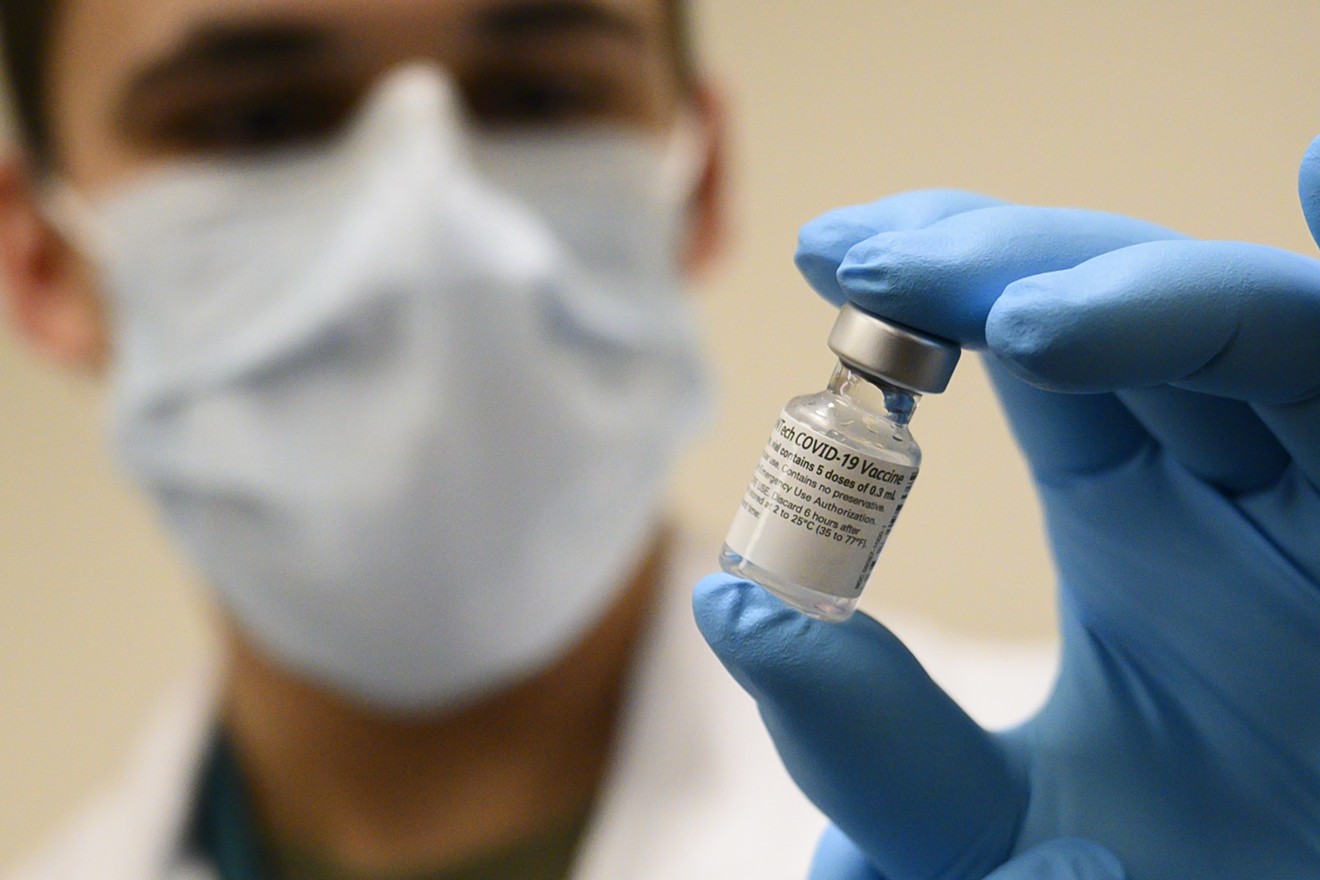Of the 10 Texas counties most at risk of severe vaccine deficits, Dallas, Collin and Tarrant counties ranked as Nos. 3, 4 and 5, respectively. Harris and Travis counties were the top two, while Denton County clocked in at No. 7.
Data science company Cogitativo compared its own vaccine distribution model with the one recommended by the Centers for Disease Control and Prevention’s Advisory Committee on Immunization Practices (ACIP). Most states, including Texas, have adopted the bulk of ACIP’s guidelines.
But Cogitativo asserts its model is better at targeting vulnerable populations, and many Texas counties are at risk of vaccine shortfalls.
During the “most complex health challenge of our time,” states need the proper tools to accurately assess need, said Gary Velasquez, Cogitativo’s CEO. Regardless of whether they live in a city or rural town, every resident deserves equal access to the COVID-19 vaccine.
“The data is clear: Without a more precise approach to allocating the vaccine, many of the most vulnerable — often in communities of color and rural areas — will be overlooked,” Velasquez said in a news release.
Yet many states are scrambling to keep up with the challenges of COVID-19 and lack a way to accurately identify the number of high-risk residents living in each county, according to the report. Without a foolproof system in place, preventable deaths will continue to occur.
A quarter of all Texas counties will likely see vaccine shortages under the state’s current distribution protocol, the report shows. Of all counties to see those deficits, there’s likely to be a combined shortage of more than 723,140 doses.
Texas could save lives if it adopted a distribution model based on both clinical data and social determinants of health, such as access to fresh food and air quality, according to the report. Using a distribution model based on those factors, the state could avoid more than 69,626 additional hospitalizations; more than 57,670 additional lives could also be saved."[People] need the state to give Dallas and Tarrant county their rightful allocation of vaccine.” – Dallas County Judge Clay Jenkins
tweet this
Vaccine distribution in North Texas has been rocky recently, in part because of last week’s devastating winter weather. And as federal vaccination hubs cropped up in Dallas and Tarrant counties, Texas’ health department cut their state-allocated supplies.
By late June, Dallas County could reach herd immunity, meaning enough of the population has gained immunity to COVID-19 via infection or inoculation. County Judge Clay Jenkins said that can only happen if the state returns those allotted shots.
But if those doses continue to be withheld, Jenkins said North Texas won’t hit herd immunity until late August or September. The difference that would make in people’s lives, and economic output for the region, would be "astronomical," he said.
Normally, federal assistance doesn’t alter the way the state distributes resources, Jenkins added. For instance, Texas wouldn’t typically take away a school’s money if it got a grant; it also wouldn’t deplete state-allocated body cams because law enforcement received federal funds for more.
“So what they’ve done here is unprecedented, and at the time when people really need help,” Jenkins said. “They need the state to give Dallas and Tarrant county their rightful allocation of vaccine.”












